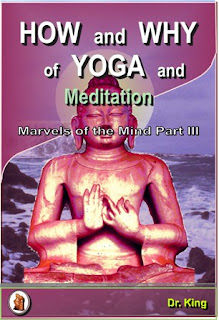I keep coming across many self-claimed rationalists who proudly declare that they are atheists! They are sure that God does not exist and they want you to believe them!
But I am yet to come across a single person, rationalist or otherwise, who can prove or disprove the existence of God. Neither of these is possible.
At least the way the God is talked about in the ancient Indian Upanishads, precludes any definitive statement about God, let alone proving or disproving its existence. As one Upanishadic sage honestly admits
“..we have not fully understood It. Nor we know how to explain to others whatever we have understood”
I think, we need to have that kind of humility. Something that the Upanishads declare as beyond senses, beyond the mind, how can such a thing be verified or proven or disproven?
All our empirical dealings are restricted to what we can perceive through the senses and the mind. So, how can we prove or disprove something that is by definition beyond senses and Mind?
If you look at honestly, there are many things in our life that we take for granted without worrying about the reality of it. The plain fact is that there are just too many of such things.
For example, there is no way we can prove that the sun would rise the next day. But each day, all of us go to bed with the firm belief that sun is going to rise the next morning, and we would go to our offices!
So, in practical terms, what is more important is whether some belief is useful or not. Does it harm us or benefit us? If some belief is beneficial and does not harm us in any way we can think of, then such a belief is acceptable. It is irrespective of its factual validity or otherwise.
The same thing holds good about God also.
Unlike the religious concept of God, who is a person who at times speaks to us, who gets pleased with our actions or gets annoyed, the Upanishadic concept of God is more abstract. The Upanishads never characterize God as He, or She or It, let alone giving a human like form to it. It also says that it is beyond all empirical dealings.
That being the case, useless arguments like whether such an entity exists or not are shear waste of time. We need to worry about whether such a concept is useful.
Patanjali declares God as a special soul which was always free of all delusion. It is referred to by the sound OM. Meditating on OM can lead one to the ultimate stage of Yoga namely the Samadhi.
How does this happen?
Patanjali says that when one meditates on OM, the shroud of ignorance that normally covers one’s soul gets automatically removed. Once the soul comes out of its ignorance, it realizes its true nature. That is the ultimate realization. That is the goal of Yoga.
Patanjali calls this process as Ishwara Pranidana. Ishwara means Supreme Lord and Pranidana is surrender to him. He is not Krishna, or Jehovah, or Jesus, or Allah, but some concept to which you surrender and achieve your goal.
If you cannot think of abstract things, it is still ok. If you are a Hindu, you can imagine That as Krishna or some other Hindu God. If you are a Christian, Jesus can be That. For a Muslim, It is Allah. It does not really matter. It is just a way of coming out of your deluded state.
In this process, the existence or otherwise of That, becomes immaterial.
Surrender to Lord or Ishvara Pranidana is the fifth do in the second step Niyama of Yoga. It is an option, but not an essential part of Yoga, though. You can choose to ignore it if you like.
Incidentally, in my book, “How and Why of Yoga and Meditation” I have devoted a complete chapter namely “Sing your stress away”, to elaborate on this concept of surrender to God. There, I have explained how one can use devotional singing as a means to stress relief. I have also explained how it works and the right way to achieve that.
So, it is not important that God has to exist for all these to work. The faith, and the right approach by themselves yield the results. Mark my words, “right approach”, not just the faith. You can see my book for more details.
For many of you it may appear that whatever dos and don’ts that I discussed as part of Yama and Niyama in the previous several episodes were mere some moral values and nothing else. No, they are more than that.
These can not only help us at the societal level but also at individual level as well, both in our routine lives as well as in Yoga practice. In fact, I look at them as more than 50% of Yoga. They are the most important components of Yoga. They are the ones that guide us towards the climax of Yoga.
How? Let us see that in the next episode.
A series revolving around Mind – Science of Mind, Philosophy of Mind, Notions of reality, Mind modulation, Domains beyond Mind, and so on. © Dr. King 2019


No comments:
Post a Comment